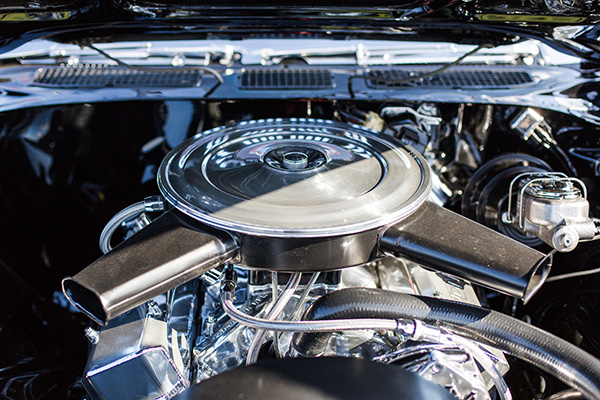
Classic cars are different from modern vehicles in more ways than looks alone. Their engines require a completely different level of care. Whether you’re maintaining a fully restored showpiece or a vintage weekend cruiser, the reality is that these engines were built with older materials, looser tolerances, and systems that predate today’s technology. Treating a classic engine like a modern one can lead to costly mistakes.
Here’s why engine maintenance for classic cars should always be approached with extra caution and expertise.
Materials and Tolerances Are Not the Same
Engines built 30 or 40 years ago use different materials and have wider tolerances between moving parts. This affects how oil flows, how components wear, and how heat is managed. Many classic engines rely on higher zinc content oils that provide extra protection for flat tappet camshafts and other friction-heavy parts. Using the wrong type of oil can lead to premature wear, even if the engine sounds fine at first.
Modern synthetic oils aren’t always compatible with older gaskets and seals either. They can leak through areas that conventional oil would normally seal, leaving you with a mess and a drop in oil pressure. Choosing the right oil and fluid types is one of the most important decisions for a classic engine.
Carburetors and Mechanical Fuel Delivery
Unlike modern vehicles that rely on electronic fuel injection, most classic cars use carburetors or mechanical fuel pumps. These systems are more sensitive to ethanol in today’s gasoline, which can corrode metal parts, damage rubber seals, and clog jets.
Many classic owners don’t drive their cars daily, so fuel often sits in the system for weeks or months at a time. That increases the risk of varnish buildup and performance issues. Regular maintenance of the carburetor, fuel lines, and tank is necessary to avoid hard starts, stalling, or uneven idle.
Cooling Systems Work Differently
Classic cooling systems were built for a different era. They don’t always handle stop-and-go traffic or long idle times, and neither do modern engines. Radiators, water pumps, and thermostats were simpler and more prone to overheating. This becomes a bigger issue in warm climates or during summer cruises.
If your classic car has trouble maintaining temperature or you see frequent coolant leaks, it’s worth upgrading the cooling system while still keeping the vehicle period-correct. Many owners opt for aluminum radiators or electric fans that blend reliability with vintage appeal.
Ignition Systems Are Fully Mechanical
There’s no computer to tell you when a spark plug is misfiring or a wire is damaged. Classic cars use distributor-based ignition systems that rely on physical components like points, condensers, and timing advances. These parts wear out faster than their modern counterparts and need periodic adjustments.
If your car has a hard time starting, runs rough, or feels sluggish on acceleration, the ignition system should be one of the first things checked. Replacing worn points or adjusting the timing can often make a world of difference.
Storage Conditions Matter
Because most classic cars aren’t daily drivers, storage plays a huge role in how well the engine holds up. Moisture, dust, and even fuel degradation can quietly damage seals, hoses, and internal components over time. Regular starts, fluid checks, and a proper battery tender can help, but it’s also important to run the car long enough for it to reach operating temperature. That burns off condensation and keeps internal parts lubricated.
Routine Maintenance Isn’t Always Enough
Even when everything seems fine, minor problems can develop faster in a classic car. Oil leaks, minor knocks, and slow cranks often go ignored until they become major headaches. That’s why it’s important to work with someone who understands how these engines are supposed to sound and feel, not just what the scanner says.
Diagnostics for classic engines involve more hands-on work and a lot of listening and observation. Whether it's tuning the carburetor by ear or feeling a slight timing issue during a test drive, experience counts.
Prestige Autohaus – Trusted Care for Classic Engines in Walnut Creek, CA
At Prestige Autohaus, we treat every classic car with the care and knowledge it deserves. Our team understands how vintage engines operate and what it takes to keep them healthy. From tuning to complete overhauls, we help Walnut Creek’s classic car community enjoy their vehicles without sacrificing reliability. Schedule a visit today and let us help you protect your piece of automotive history.